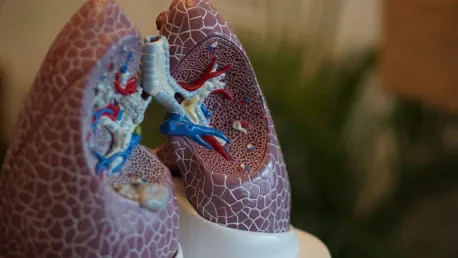In a groundbreaking study, researchers have uncovered promising evidence suggesting that sulforaphane, a compound found in cruciferous vegetables like broccoli, can play a significant role in preventing lung cancer, particularly among former smokers. As the leading cause of cancer-related deaths, lung cancer remains a formidable challenge for the scientific and medical communities. The study conducted by Yuan and colleagues, detailed in the peer-reviewed journal Cancer Prevention Research, sheds new light on the potential of dietary supplements to combat this deadly disease.
Clinical Study Findings
The clinical study by Yuan et al. was both rigorous and thorough, embodying a double-blind, placebo-controlled, randomized approach. This design adds substantial credibility to the study’s findings. It involved 43 former smokers identified as being at high risk for developing lung cancer. These participants were divided into two groups: one group received a daily dose of 120 mg of glucoraphanin, the precursor to sulforaphane, while the other group was given a placebo.
One of the critical indicators monitored throughout the study was the Ki-67 index, a well-known marker for cell proliferation that signifies cancer growth. After analyzing the data, the researchers discovered a remarkable 20% decrease in the Ki-67 levels among those who took the sulforaphane supplement. In stark contrast, the placebo group saw a 65% increase in Ki-67 levels. These findings highlight the potential efficacy of sulforaphane as a preventive measure against lung cancer. The substantial reduction in cancer cell proliferation marked by a lowered Ki-67 index suggests that sulforaphane could be a powerful tool in reducing cancer risk.
Need for Further Research
While the findings of the study are indeed encouraging, they also underscore the necessity for further research. The next logical step, according to the researchers, is to initiate a larger phase III clinical trial. This subsequent trial would aim to determine the long-term efficacy and safety of sulforaphane in lung cancer prevention. Such expanded research efforts are crucial in establishing reliable and robust evidence to support the use of sulforaphane supplements on a broader scale.
Nutramax Laboratories, the company responsible for developing the Avmacol® supplement used in the study, has emphasized the safety and efficacy of their product. Meghan Hamrock, the Director of Consumer Marketing and Clinical Nutrition at Nutramax, underlined the significance of these findings. She pointed out that the study’s outcomes contribute to a growing body of research demonstrating the benefits of sulforaphane, not only in cancer prevention but also in other complex health conditions. The company, founded in 1992, has consistently focused on producing high-quality, science-backed consumer health products.
Implications and Future Directions
In a pioneering study, researchers have discovered compelling evidence indicating that sulforaphane, a compound present in cruciferous vegetables such as broccoli, may significantly aid in preventing lung cancer, particularly in individuals who have quit smoking. Lung cancer, the leading cause of cancer-related fatalities, poses a severe challenge to both the scientific community and medical professionals. The research led by Yuan and his team, published in the peer-reviewed journal Cancer Prevention Research, offers new insights into how dietary supplements could potentially combat this life-threatening disease. This revelation marks a significant stride in the ongoing battle against lung cancer. Further exploration and clinical trials are necessary to confirm sulforaphane’s efficacy fully, but the findings present a promising avenue for prevention strategies. Given the high mortality rate associated with lung cancer, these findings are particularly noteworthy for developing dietary approaches aimed at reducing cancer risk.









